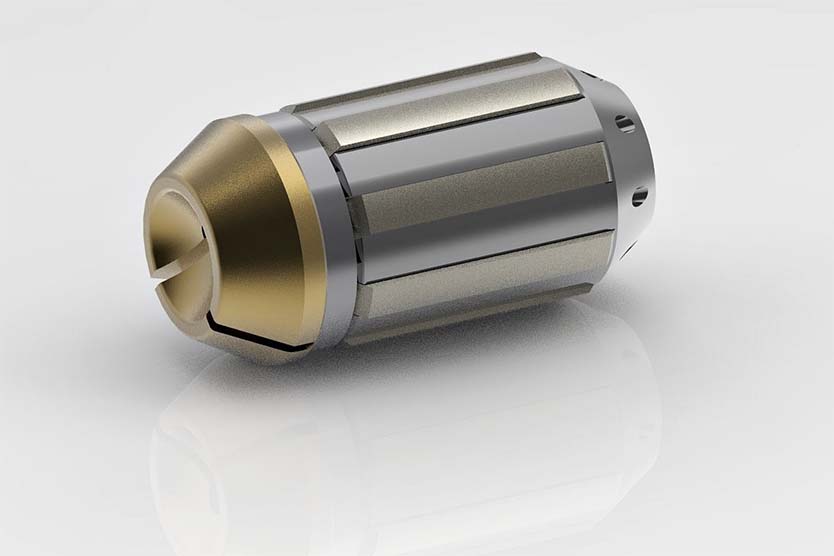
The micro drilling turbine with a diamond drill bit is only 10 centimeters long and has a diameter of 3.6 centimeters. When drilling, it rotates at up to 80,000 rotations per minute.
© Fraunhofer
Natural geothermal energy is an inexhaustible source of climate-neutral power. Only a fraction of its potential has been exploited due to the high finding risk of 30 percent and the substantial costs of constructing the boreholes, which reach down several thousand metres into the earth's crust to tap superheated water found in reservoirs and fissures. Even so, experts estimate the number of geothermal plants in Europe will double over the next five to eight years.
A new ground-breaking technology developed at the Fraunhofer Institute for Energy Infrastructures and Geothermal Systems (IEG) in Bochum will reduce the associated risks by greatly increasing the yield from existing wells. Micro turbine drilling (MTD) technology, a concept invented at IEG by researcher Niklas Geißler, perforates the area surrounding the borehole in a radius of 50 metres and hydraulically connects the water-filled cracks and fractures to the well.
“Wells that reach several kilometres into the earth's crust cost millions of euros. Additional branches from the main well using MTD increase the catchment area for hot water and the exploration risk significantly decreases,” Geißler summarises in a Fraunhofer press release.
At the heart of the MTD unit is a small drill bit just 10 cm in length made of a tungsten carbide matrix with incorporated diamond grains. It is attached to a high-pressure hose which powers it by pumping up to 200 litres of water a minute at a pressure of around 100 bar, which turns it like a turbine. Not only is the drill capable of grinding through hard rock at 80,000 rotations per minute but it can also penetrate the steel casings of the borehole.
Proof of concept has been carried out at the Bedretto Underground Laboratory in Switzerland and the technology is now ready for use in wells. The project has been funded by the German Ministry for Economic Affairs and Climate Action with 430,000 euros since March 2021.


